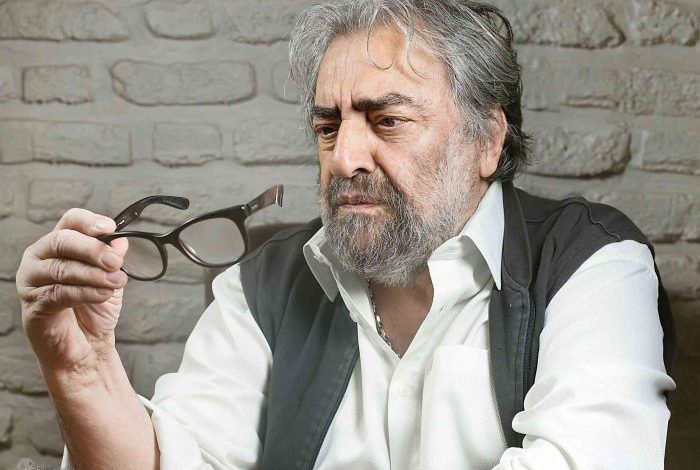

to report Trust cinema Javad Tusi in Edemad newspaper He wrote a note with the title “My whole body is a blade of an old knife”:
The concept of “realism” in the world and worldview of Masoud Kimiaei has a high position and a different definition. He himself mentions realism like this: [در رئالیسم فقط یک مفهوم حاکم نیست، چندین مفهوم درتنیدگی با هم به یک نظرگاه میرسند که گفته شده ادبیات رئالیستی به درک بهتر واقعیت کمک میکند. به ارزشهای نهفته میرسد که تردیدی نیست هیچگاه رئالیسم در پی توانمندی در فلسفه و یا دیدارهای بحث و گفتوگو نیست که در پی «خود ثابتی» باشد].
In fact, from his point of view, realism, without having a ostentatious and imposing presence, reveals and exhibits the beauty of reality. This fact can be an objective and unretouched image of an era and the classification of its people. However, we should note that the creator of the work in this realism can have a proper journalistic and at the same time artistic game with the customary and professional rules of the media he has chosen. Masoud Kimiaei carried this realism with him from “Kaiser” to “Treason” and evaluated the world around him and his chosen class and people with it. In addition to the story and narration, what is of fundamental importance for Kimiaei is the position and characteristics of people who are placed in the image of “hero” or “anti-hero” or a combination of the two according to cultural/social/historical conditions. From this point of view, Qaiser, Dash Akel, Seyed and Qadrat of “Gozenha”, Rahian Sang of the film “Stone Journey”, Ahmed “Serpent’s Tooth”, Nouri “Serb Sultan”, Fazli “Bhoon Shed” and that group of justice-seeking fighters in “Treason” ” are placed in a heroic field, and Reza Motori and Amir Ali in “Protest” and Reza in “Dandan Ser” show their contemporary position in a combination of hero and anti-hero, and Amani’s “Red Line” is an exceptional example of anti-heroism based on performance. And his viewpoint and moral manifesto have both sympathetic and repulsive aspects.
Of course, it depends on the capabilities of the artist and the creator of the work, how he can give a believable image and representation to this group of people in the heart of reality.
If we accept that realism mainly deals with strata and classes that are exposed to vulnerability and collapse at critical moments and historical events, the filmmaker, writer and writer of such a world and attitude inevitably has a “justice-seeking” view. But Masoud Kimiaei’s difference The process of filmmaking and the creation of other literary works is that he interpreted his desire for justice with morals and character and noble human characteristics, not with an ideological point of view (presumably of socialist realism). And his constituents have the right to protest and act and seek justice and to think of conflict in response to inequalities and inhumane/ethical behavior. Masoud Kimiaei, based on his works, a significant number of which have found a lofty and lasting place in the history of culture and art of this land, is still alive and well as a filmmaker and culture maker. Happy birthday, may his head be healthy, may his life continue to be fruitful… in the hope of continuing his motivational presence on the stage.
* Borrowed from one of Masoud Kimiaei’s poems from the “Zakhm Aql” collection.
